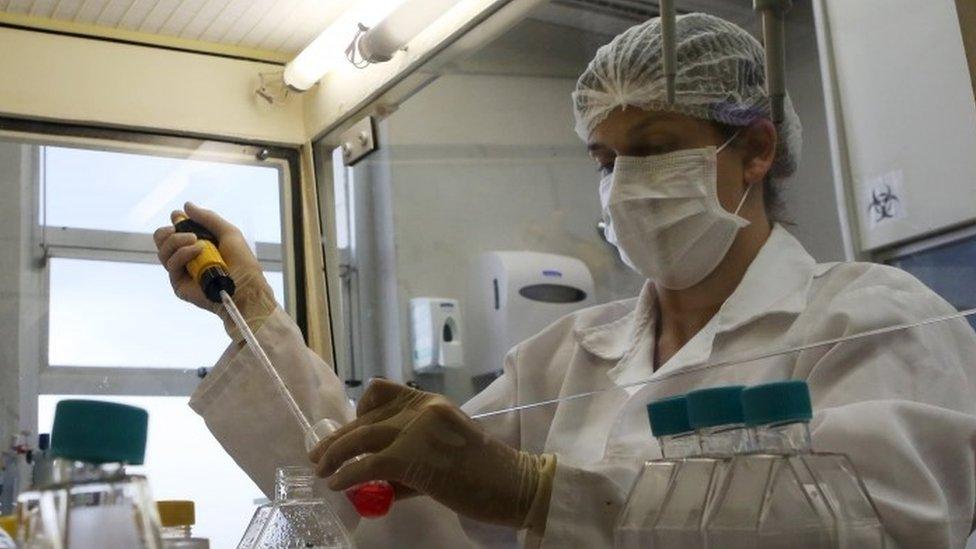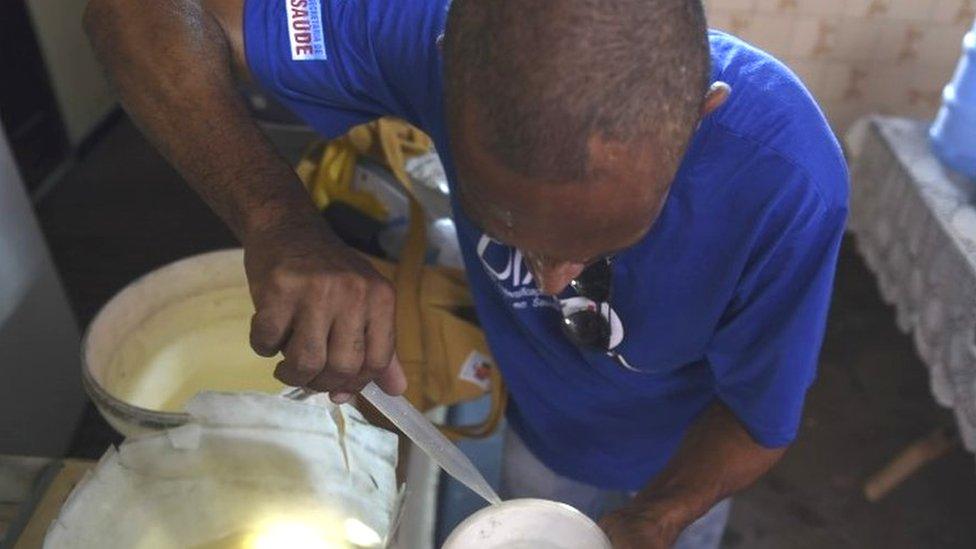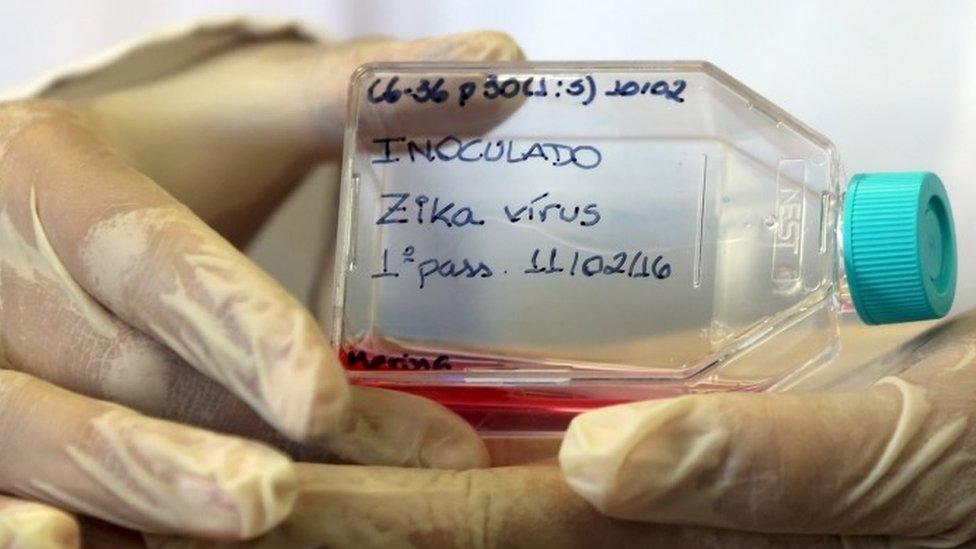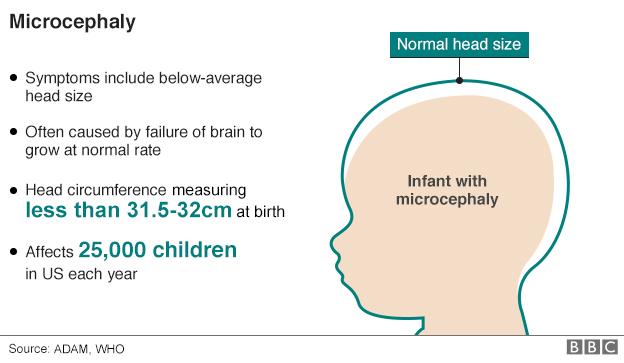Brazil Zika virus: New link to microcephaly in babies
- Published

The link between between the Zika virus and babies born with birth defects is still not conclusively proved
More evidence linking the Zika virus to birth defects in babies has been found, scientists in Brazil say.
The research team discovered the virus in the brains of two babies who only lived for 48 hours.
The mosquito-borne virus is thought to cause microcephaly in babies, who are born with damaged brains and abnormally small heads.
Brazil has about 460 confirmed cases of microcephaly, and is investigating about 3,850 suspected cases.
The virus has spread throughout Latin-America, but Brazil has been hardest hit.

The government has deployed the army in force to warn people about the risks of the virus

The government says that eradicating the Aedes aegypti mosquito that transmits the Zika virus is a priority
Scientists told the BBC that samples taken from the brain tissue of the two babies showed that the Zika virus was still actively present.
The research was conducted by scientists from Rio's Federal University (UFRJ), Fiocruz Institute and Paraiba's Professor Amorim Neto Research Institute.
The scientists have been following the pregnancies of 10 women in the north-eastern state of Paraiba - the second worst-hit by cases of microcephaly.
Rio Open: Rafael Nadal 'not scared' of Zika virus
Rio Olympics 2016: Non Stanford not worried by Zika outbreak
Brazil's race to find a vaccine
Read more about the Zika virus
One of the researchers who made the possible connection between Zika and brain defects, Dr Adriana Melo, told the BBC that cases she has seen in the north-east of Brazil "are never microcephaly alone" - but include other brain disorders such as dilated ventricles, calcifications and contractures to the joints.

Scientists are working around the clock to get to know more about the virus
The BBC's Julia Carneiro in Rio de Janeiro says that the findings add more evidence to results announced last week by scientists in the US and Slovenia who detected the virus in samples from other babies with microcephaly.
On Monday, a team at the PUC-Parana University in the south of Brazil also announced to have found the virus in tissues taken from babies with microcephaly who died after birth.
On Saturday Brazil said it was deploying more than 200,000 soldiers across the country to warn people about the risks of the virus.
President Dilma Rousseff has insisted the crisis would not "compromise" the Olympics Brazil is hosting in August.

The World Health Organization (WHO) has declared a global public health emergency over the possible connection between Zika and microcephaly.
While the link with Zika has not been confirmed, the WHO and other public health bodies have said it is strongly suspected.
The microcephaly cases have been centred in north-east Brazil, but the Zika outbreak has affected people in more than 20 countries in the Americas.


More on the Zika crisis:
Microcephaly: Why it is not the end of the world
What you need to know: Key questions answered about the virus and its spread
Travel advice: Countries affected and what you should do
The mosquito behind spread of virus: What we know about the insect
Abortion dilemma Laws and practices in Catholic Latin America